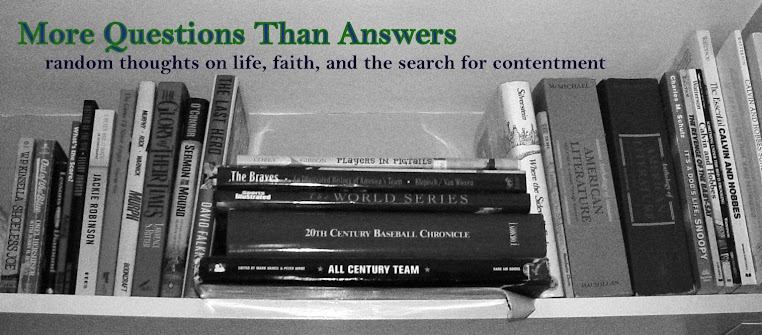Christmas Day is just a few away and as I read the Christmas story according to Luke I am struck by how much travel Jesus endured in his early infant days. His parents, Joseph and Mary (pregnant with Jesus) traveled from Nazareth to Bethlehem to check in with the local government. Jesus was delivered here in a stinky barn. From there the family traveled to Jerusalem for the baby dedication in the temple. Then at the urging of an angel, the family was exiled to Egypt (part of Mark's narrative) because the king wanted Jesus dead. Once King Herod was dead, the family returned to Nazareth where the trip first began.
The traveling for Jesus didn't end, in fact it continued for the remainder of his life. I don't know that Jesus ever called a place "home" in the same way we do. Jesus never go too comfortable in any one place and often wore out his welcome. His life was a journey of purpose not places. Click here for an outline of Jesus' life journey as he made his way from town to town. As one reads the gospel narratives, Jesus seems to be a homeless drifter.
I don't know why this particular point has been raised with me other than to remind me of the places I've been. This doesn't seem to be a traditional or even poetic Christmas theme I know. Hilary and I will periodically talk about our map and discuss what led to the various places we've made home and what ultimately led us some place else. Even our plot here in Cincinnati, questions have been raised as to why we are here. We feel like we have moved alot and wonder at times if we have made life difficult for ourselves. Our immediate families are far enough away that our lives cannot blend together as we'd like at times. Admittedly there are times we (mostly me) are glad we're far, far away.
For Jesus and all the stops he made as a homeless drifter, it was never about the location or the circumstances. He didn't complain about the housing market or the tax base or even the condition of the public schools. Jesus didn't worry about a job with benefits or how far away he was from his parents. He was content with his purpose as God's Son.
As I spend Christmas here at home and then travel to both sides of family I'm asking the Lord to repel circumstances and to reveal purpose. I don't know if there will be any more moves in the future but either way, my prayer this Christmas is to understand his purpose for me in the place he has prepared, as God the Father did for his only son (Matthew 1:20&21, NLT).
...and an angel of the Lord appeared to him in a dream. "Joseph, son of David," the angel said, "do not be afraid to go ahead with your marriage to Mary. For the child within her has been conceived by the Holy Spirit. And she will have a son, and you are to name him Jesus, for he will save his people from their sins."




